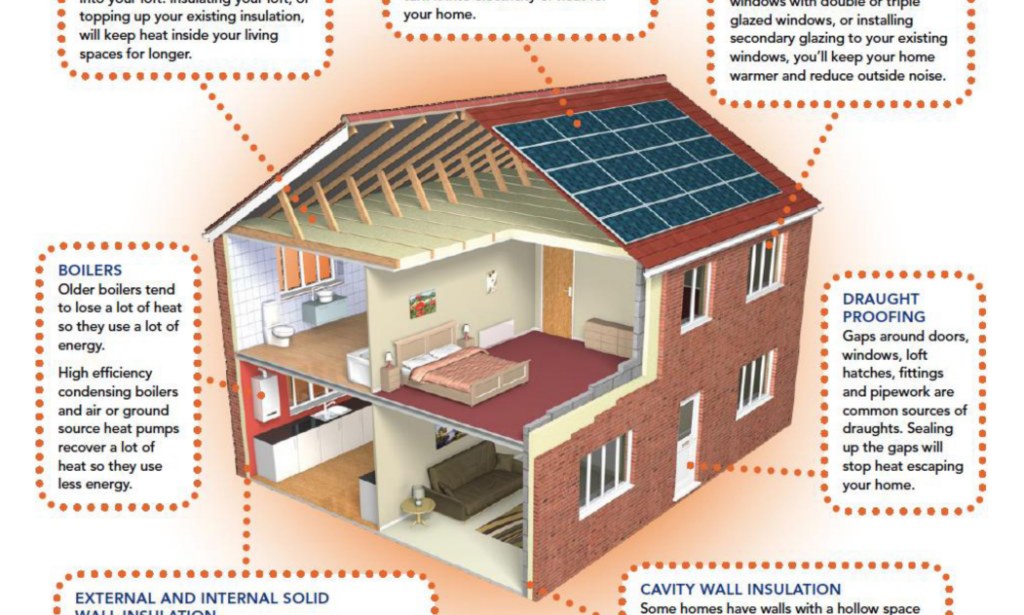Introduction:
Energy efficiency in a home isn’t limited to walls, windows, or insulation it extends to every structural element, including the garage door. In many homes, especially those with attached garages, the door acts as a major entry point for heat loss during winter. A non-insulated garage door allows cold air to flow directly into your home, forcing heating systems to work harder and consume more energy. An insulated garage door acts as a thermal shield, maintaining consistent temperatures and preventing drafts. This efficiency upgrade not only supports a more stable indoor climate but also lowers monthly heating costs.
How Insulated Garage Doors Improve Thermal Efficiency:
“Insulated garage doors are engineered to minimize heat transfer between indoor and outdoor environments. Their design often includes multiple layers, commonly steel or aluminum shells combined with high-density polyurethane or polystyrene cores. This layered construction creates an effective thermal barrier, limiting heat conduction and air leakage. The insulation level of a garage door is measured by its R-value, which indicates resistance to heat flow. Higher R-values mean greater thermal performance. In cold regions, garage doors with R-values above R-10 are highly recommended to maintain interior comfort and energy efficiency”. Says Kelly Terry, President & CEO, Overhead Door Corporation
The Direct Impact on Energy Consumption and Heating Costs:
“Homeowners in colder climates often notice a spike in heating bills during the winter season. A poorly insulated garage door can be a hidden contributor to this problem. Since many garages share walls with living spaces, heat can escape easily through uninsulated surfaces. The result? Increased energy consumption and uneven indoor temperatures. Installing an insulated garage door creates a temperature buffer, reducing energy loss and stabilizing indoor conditions. Over time, this translates into significant savings on heating costs. Many homeowners also report more consistent temperatures in adjacent rooms, eliminating cold drafts and improving overall comfort. This energy efficiency upgrade can lead to annual utility savings that quickly offset the initial investment”. Says Noah Willi, Service Manager, Raynor Garage Doors of Kansas City
Maintain Comfort and Functionality in Cold Conditions:
“Comfort isn’t just about warmth; it’s about creating functional spaces that perform year-round. A non-insulated garage often mirrors outdoor conditions, making it uncomfortably cold in the winter and excessively hot in the summer. Insulated garage doors help maintain moderate temperatures, ensuring your garage remains usable regardless of the season. For those who use their garage as a workshop, gym, or storage area, insulation makes a tangible difference. It keeps the space warmer in the winter and prevents freezing temperatures that can damage tools, car batteries, and other sensitive items. This stable environment enhances both usability and protection for everything stored within the garage”. Says Bill Christensen, CEO of JELD-WEN Windows & Doors
Moisture Control and Protection Against Condensation:
“Cold climates often bring another hidden challenge, condensation. When warm indoor air meets cold garage door surfaces, moisture can accumulate, leading to rust, corrosion, and even mold growth. Insulated garage doors effectively combat this problem by maintaining a warmer inner surface temperature, reducing the risk of condensation formation. Additionally, the insulation materials used, typically polyurethane or polystyrene, serve as moisture barriers, protecting both the door and the garage interior. This helps preserve tools, vehicles, and mechanical systems stored inside. Long-term, homeowners experience fewer maintenance issues, reduced rust buildup, and a longer-lasting garage structure”. Says Tricia Beaudoin, Sales Manager, Active Garage Door
Durability, Noise Reduction, and Structural Integrity
“One of the most overlooked benefits of insulated garage doors is their superior build quality. The multi-layered design not only improves thermal performance but also enhances the door’s durability. These doors resist dents, warping, and weather-related wear far better than single-layer, non-insulated models. The added density of insulated doors also helps reduce operational noise. Vibrations are absorbed by the insulation core, resulting in smoother, quieter door movements. This is particularly beneficial for garages adjacent to bedrooms or living spaces. The combination of strength and quiet operation creates a premium experience that extends beyond energy savings”. Says Thomas J. Hörmann, Manager, Hörmann Group
Supporting Environmental Sustainability:
“Homeowners are increasingly prioritizing sustainability, and energy-efficient garage doors align perfectly with that goal. By reducing heating demands, insulated garage doors directly contribute to lowering household carbon emissions. This is particularly impactful in regions where heating relies heavily on fossil fuels or electricity from non-renewable sources. Modern insulated garage doors are also manufactured with eco-friendly materials, such as recycled steel and low-emission insulation compounds. For eco-conscious homeowners, upgrading to an insulated model supports both financial and environmental goals. It’s a small but meaningful step toward a more energy-efficient and sustainable home ecosystem”. Says Mikołaj Placek, CEO, Oknoplast
Long-Term ROI and Property Value Enhancement:
“An insulated garage door offers one of the best returns on investment among energy-efficient home upgrades. While the upfront cost is slightly higher than a standard model, the ongoing benefits, reduced energy bills, increased comfort, and lower maintenance, make it well worth the investment. From a real estate perspective, energy efficiency is now a key factor for modern buyers. Homes with features such as insulated garage doors often stand out in the market for their sustainability and cost-saving potential. In cold climates, where energy performance is critical, an insulated garage door not only boosts comfort but also adds measurable resale value”. Says Jeff Reilly, CFO, Universal Window & Door
Conclusion:
Energy efficiency has become a defining aspect of modern homeownership, and insulated garage doors play a crucial role in achieving that goal, particularly in cold climates. By minimizing heat loss, preventing condensation, and improving durability, these doors offer comprehensive performance benefits that extend beyond aesthetics. Homeowners who invest in insulated garage doors experience tangible improvements in comfort, energy savings, and long-term value. As energy costs continue to rise and environmental awareness grows, upgrading your garage door becomes not just a home improvement but a step toward a smarter, more sustainable lifestyle.








